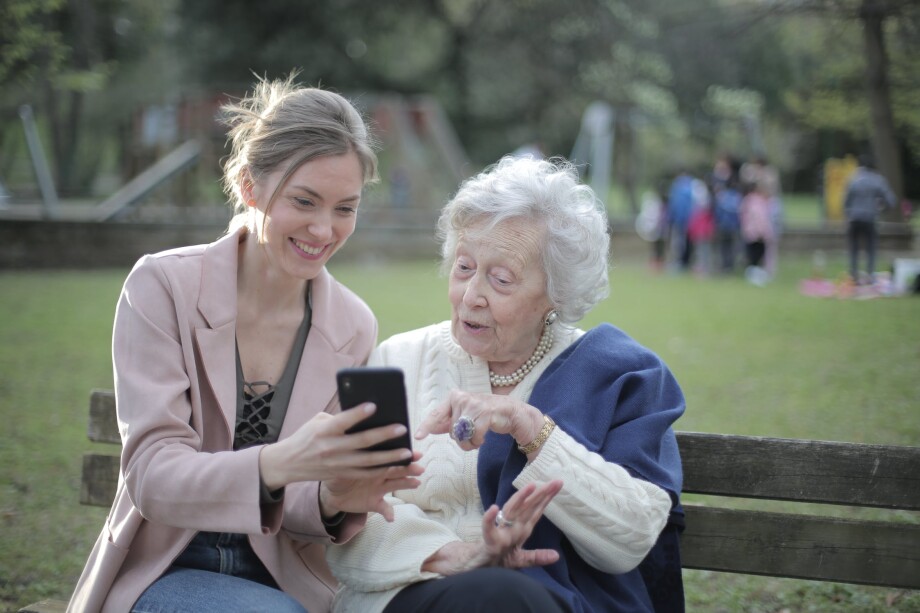Teaching, in general, is a rewarding experience in terms of valuable student feedback and the progress that is achieved through hard work and determination. When you happen to have seniors in your class or teach a whole class of seniors then teaching will be a real treat for you. In this article, we will present some tips/techniques which will help you while preparing a course for seniors. These tips and techniques will not only focus on what kind of materials will best suit older people to learn but will also suggest ways on how to motivate them and consider their age-specific needs.
Choose appropriate materials carefully
Senior students have a wealth of life experience and when they bring this to the classroom the learning experience gets more spiced. Older learners are always happy to talk about their experiences and give their opinions on a wide range of topics. Therefore, the relevant topic will always trigger seniors to get engaged in the classroom activities. Among those topics, we can include those which are related to their past experiences (changing workplaces or residence, raising children, value of education, traveling, etc) or some topics which may interest them at their current age (gardening, calligraphy, amateur dancing, traveling, cooking, etc). Creating a close contact with them will help you better understand their needs and interests.
Consider age-relevant learning styles
Elders often prefer a fairly analytical formal way of grammar input and need to be given a lot of controlled practice, before moving into more fluency-based communication activities. It may take seniors some time to adapt to spontaneous oral practice, and they may request a lot more explicit explanations and detailed grammar presentations. Let them take a lot of notes and refer to them in practice. Also, be patient with the flow of questions coming from them. The time spent on clarifying their questions will create a smoother transition to the next set of activities.
Be aware of the challenges
In general, senior learners are extremely kind, considerate, and hardworking learners. what a pleasure they are to teach. Agree, what a pleasure it is to teach them. However, there may be some cognitive, affective, or physiological factors that can affect senior language learning.
Hearing loss/ difficulties with hearing may have a direct impact on learning and performance for senior learners. In order to decrease the negative effects of this auditory loss, teachers can take up the following steps:
- speaking clearly and ensuring that the students can see their faces and lips;
- adjusting the volume for listenings and videos;
- repeating recordings several times;
- using short films and videos which aid listening comprehension as students can see the faces and lips of the speakers;
- ensuring that your classrooms have little background noise.
Defective vision increases dramatically as people age. Beloware some steps the teachers can follow.
- Use a larger print type for printed text.
- Write very clearly on the board.
- Ensure that classrooms have a lot of natural light and that there is direct lighting for the whiteboard.
Research indicates that cognitive development and problem-solving may show decline with aging. Teachers can help seniors develop and maintain their cognitive ability in several ways:
- Integrate memory exercises into classes. Use visual and auditory mnemonic devices, examples, and memory associations to help seniors rehearse and later retrieve vocabulary and expressions from long-term memory.
- Repeat and recycle grammar, vocabulary and expressions on a continuous basis.
- Encourage students to draw on their life background and to use cognitive strategies they have used successfully in the past in their current language learning environment.
- Allow more time for students to produce language without being interrupted.
Build confidence and reduce stress
Older students can be too hard on themselves, especially when trying to learn a foreign language due to their perfectionist nature. Your role, as a teacher, is to make them believe that minor mistakes are quite acceptable and there is no need to worry about them. Here are some things you can do to build their confidence:
- Promote a friendly atmosphere
- Build empathy between you and your students.
- Don’t do timed tests. Give them a bit more time than younger students to prevent them from becoming anxious.
To sum up, senior learners are a great addition to any classroom. They will be successful especially if you get to know them and create an environment where their needs are met by using relevant methods for it.






 Вероника Аветисян
Вероника Аветисян 
 Маргарита Аветисян
Маргарита Аветисян 


